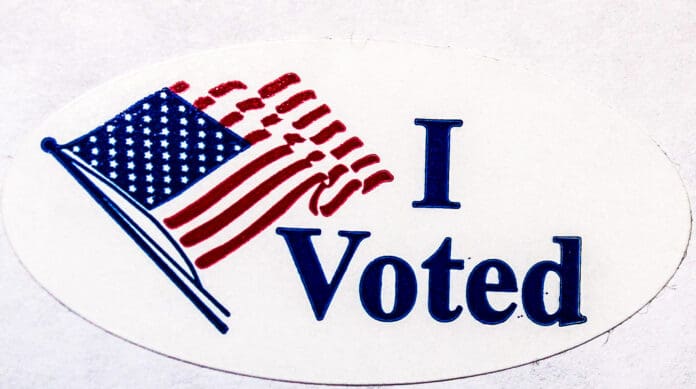Even in election cycles where certain races lack fierce competition, showing up to vote is more essential than ever.
With only weak or even uncontested challengers in many races, it might be tempting to assume that one’s vote will not make a difference or that the results have already been decided. This, however, could not be further from the truth. In fact, voting consistently, even when the stakes seem lower, builds the foundation of our democracy. Voter turnout in every election cycle sends a clear message about community priorities, the support for democratic processes, and the people’s voice on issues that impact their daily lives.
In a state where we have only four electoral votes, the feeling that our votes in Presidential elections do not matter.
However, in West Virginia this election cycle is an exciting United States Senate race, where the current governor is expected to change the seat currently held by Senator Joe Manchin from blue to red. Voting for local races might be seen as a less glamorous part of election, especially without well-known challengers drawing attention to the polls. But, it’s these local, elected leaders who often have the most direct influence on people’s lives. Voting in these races ensures that officials truly reflect community values and concerns.
Additionally, lower voter turnout can unintentionally elevate extreme positions or candidates who may not represent the majority’s beliefs. With fewer people participating, the odds increase that small, organized groups of voters could sway results more drastically than they might in a high-turnout election. Each vote, then, becomes critical to preventing decisions from being made by a very small minority that may not have the entire community’s best interests at heart.
Each election cycle, even in quieter races, serves as a measure of a community’s engagement. High voter turnout, regardless of the competitiveness of a race, signals to elected officials that their constituents are paying attention. When elected officials know they have active, engaged voters, they are more likely to be responsive and accountable in their actions. Conversely, low turnout may inadvertently communicate apathy, allowing those in power to operate with less accountability.
This level of engagement is particularly important for younger people and new voters. Regular turnout in all elections can build lifelong voting habits and develop a more vibrant civic life. These consistent habits among this demographic can bring to the forefront and will help shift the focus of politicians to issues that matter to younger generations, fostering a long-term investment in these concerns.
There can also be other issues on the ballot, even if there aren’t high-stakes candidate races. When turnout drops, so does community control over these issues. It’s worth remembering that every “yes” or “no” vote can have immediate impacts on issues, city and county services, the environment, and local development. The consequences of not voting on these issues can be significant, from increased taxes to potential cuts in community programs.
Both parties have made attempts at filling all ballot positions, largely because, in places where races are often contested, a unique culture of civic duty can take root if people make it a point to vote in every election. With the desire to make voting become a community norm, a shared expectation rather than something only done when there’s a big race or heated debate. When voting becomes habitual, it encourages more people to run for office, increases the chances of stronger candidates stepping up, and sends a signal that every voice truly matters.
Beyond the mechanics of voting, this culture of participation builds trust in the electoral process, as communities see their shared commitment to democracy in action. Hence the movement behind the I Voted stickers. Each election serves as a reminder that everyone has a part to play in keeping our institutions accountable and that our government is truly representative of its people.
History has shown that some elections are won by a single vote or a handful of votes.
Particularly in Wheeling where more than one election has been determined by razor-thin margins. This fact underscores the impact one person can have on an election’s outcome. In close races, even one vote has the power to sway important decisions that could shape a community for years. Even as recently as this May’s Wheeling City Council race, it was underscored just how Every Vote Counts!
Even in what is considered to be a safe race, the margin of victory can influence an official’s perspective on their mandate. A narrow win might signal a need for more balanced approaches, while a landslide can encourage a leader to push forward boldly on specific issues. When turnout is high, especially in uncontested or low-stakes races, elected officials receive a clearer sense of their community’s level of support, allowing them to act with greater alignment to public sentiment.
This connection is vitally important for good governance.
For those who feel that an election does not directly impact them, it is important to remember that democratic participation is always about more than any one race. It is about upholding the principle that everyone has a voice in how their community, state, and country are run.
Every election reinforces the democratic process, demonstrating that each citizen’s opinion matters. Voting sends a signal to future candidates, encourages stronger opposition in future races, and emphasizes that the democratic process should never be taken for granted.
In the end, every ballot cast represents the will of a community. Voting in every election, even when choices seem limited, reinforces the idea that our government exists to serve all people, regardless of whether the stakes are immediately visible. By maintaining high turnout, communities ensure they remain active players in shaping their future and safeguarding the principles that make democracy work.
Please make sure to be heard and vote!


